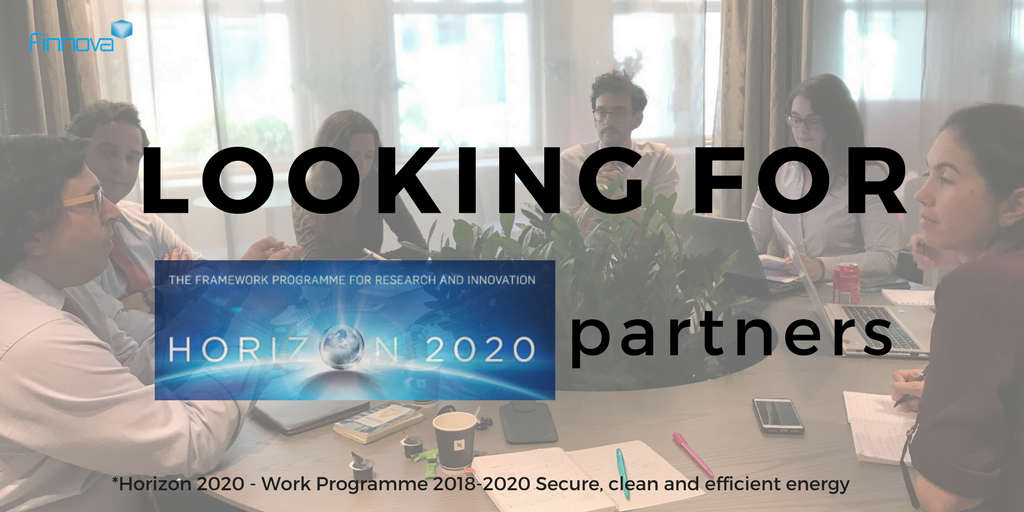
On 23th-25th October the Horizon 2020 Energy Info Days will present the new funding opportunities offered by the Energy Work Programme 2018-2020, there FINNOVA wants meet the right partners and building a consortia for a secure, clean and efficient energy project.
Finnova will carefully take note of all novelties from the funding opportunities offered by the Energy Work Programme 2018-2020 in order to find the right innovative project and consortium, which could adapt better to its experience and goals.
More than 20 years of experience in Energy EU Funded Projects
Finnova’s professional team has more than 20 years of experience working in EU Funded Projects. NOBEL GRID (Horizon 2020), ECOBUS (LIFE Programme), ECOGLAUCA ÉRGON (LIFE Programme), MIRACOIL (Seal of Excellence Horizon 2020) or AZAHAR (Seal of Excellence Horizon 2020) are some examples of the most remarkable energy projects.
Finnova has high capacities in writing proposals, finding partners and disseminating results. Moreover, it can be a potential and highly qualified partner to take part into H2020 Energy proposal, in the areas of communication and dissemination, legal advice, detection of legal barriers and in the development of new business models.
Partner in NOBEL GRID H2020 project
Currently, FINNOVA is working on the ongoing NOBEL GRID project, managing communication and dissemination work package, but also contributing in legal barriers and business models work packages.
Finnova participates also, on behalf of NOBEL GRID, in the EU Commission BRIDGE initiative. More precisely, in the WorkingGroup Customer Engagement, Finnova transmits the needs, issues and challenges that the pilot sites and partners are facing throughout the project regarding consumer, user and/or customer engagement actions. This is achieved through a continuous communication flow with the consortium, the Technofi team and the WorkingGroup chairman and rapporteur.
NOBEL GRID project, funded by the European Union’s Horizon 2020, within the topic “Distribution grid and retail market”, is developing, deploying and evaluating advanced tools, ICT services and business models for all actors in the smart grid and electricity market, in order to ensure shared benefits from cheaper prices, more secure and stable grids and cleaner electricity.
With a budget of 13.9 million euros and 21 partners led by the Spanish group ETRA, the project results are being demonstrated in real conditions in five electric cooperatives and public organizations in five different European countries, such Spain, UK, Italy, Belgium and Greece, involving all the actors of the electricity distribution network, such as DSOs, Prosumers, aggregators, ESCOs and retailers.
These tools and services are enabling active consumers’ involvement and the innovative business models for new actors and facilitate the integration of distributed renewable energy production, in order to improve the quality of life of European citizens.
In July 2018 NOBEL GRID will show the final results after 42 months of work.
Rewarding Energy Stratups
Finnova launched in 2016 Startup Europe Awards and the category Energy among others.
Energy StartUp Europe Awards aims to reward the best initiatives working in projects related to the development of sustainable and efficient energy models, based on renewable energies, as well as the development and technology transfer in the area of renewable energies along with the best governance projects and citizenship participation in the development of renewable energies.
StartUp Europe Awards (SEUA) is an initiative of the European Commission and Finnova Foundation, supported by the President of the European Parliament, the President of the Committee of the Regions, the Vice-President of the Economic and Social Committee and several members from the European Parliament. SEUA is supported by the StartUp Europe Accelerator of the Finnova Foundation.
StartUp Europe Awards presents a prize methodology for startups at local, regional and national level that fosters the open innovation and the collaboration between the different actors of the European ecosystems, through the private-public partnership to support entrepreneurs.
Whether you are interested in meeting Finnova
If you want to participate to this call send a mail to energy@finnova.eu with the subject “HORIZON 2020 ENERGY”
—————————————————————————————————————————————————————————-

Finnova busca socios para la próxima convocatoria Horizonte 2020 en materia de energía segura, limpia y eficiente
Del 23 al 25 de octubre, la Comisión Europea (CE) organiza los días informativos del programa Horizonte 2020 reto energía, donde se presentarán las nuevas oportunidades de financiación ofrecidas por el Programa de Trabajo Energético 2018-2020, allí FINNOVA quiere contactar y conocer potenciales socios y crear consorcios que permitan desarrollar una propuesta ganadora en materia de energía segura, limpia y eficiente.
Finnova tomará nota cuidadosamente de todas las novedades en cuanto a financiación ofrecidas por el Programa de trabajo de la energía 2018-2020 con el fin de encontrar el proyecto innovadores adecuados, que podrían adaptarse mejor a su experiencia y objetivos.
Más de 20 años de experiencia en Energía Proyectos financiados por la UE
El equipo profesional de Finnova cuenta con más de 20 años de experiencia trabajando en proyectos financiados por la Unión Europea en materia de energía. NOBEL GRID (Horizonte 2020), ECOBUS (Programa LIFE), ECOGLAUCA ÉRGON (Programa LIFE), MIRACOIL (Sello de Excelencia Horizonte 2020) o AZAHAR (Sello de Excelencia Horizonte 2020) son algunos ejemplos de los proyectos energéticos más destacables.
Finnova tiene una gran capacidad para redactar propuestas, buscar socios y difundir y comunicar resultados. Además, puede ser un socio potencial y altamente calificado para participación de propuestas Horizonte 2020 en materia de energía, en las áreas de comunicación y difusión, asesoramiento legal, detección de barreras legales y en el desarrollo de nuevos modelos de negocios.
Socio en el proyecto NOBEL GRID H2020
Actualmente, FINNOVA trabaja en el proyecto NOBEL GRID, administrando el paquete de trabajo de comunicación y diseminación, pero también contribuyendo en barreras legales y nuevos modelos de negocio.
Finnova participa también, en nombre de NOBEL GRID, en la iniciativa de la CE: BRIDGE. Más precisamente, en el grupo de trabajo “Compromiso del cliente”, Finnova transmite las necesidades, problemas y desafíos que los sitios piloto y los socios enfrentan a lo largo del proyecto con respecto a las acciones de participación de los consumidores, usuarios y / o clientes. Esto se logra mediante un flujo continuo de comunicación con el consorcio, el equipo de Technofi y el presidente y relator del Grupo de Trabajo.
El proyecto NOBEL GRID, financiado por Horizonte 2020 de la Unión Europea, dentro de la temática “Red de distribución y mercado minorista”, desarrolla, implementa y evalúa herramientas avanzadas, servicios TIC y modelos comerciales para todos los actores de la red inteligente y el mercado de la electricidad, con el fin para asegurar beneficios compartidos de precios más baratos, redes más estables y seguras y electricidad más limpia.
Con un presupuesto de 13,9 millones de euros y 21 socios (liderado por el grupo español ETRA), los resultados del proyecto se están demostrando en condiciones reales en cinco cooperativas eléctricas y organizaciones públicas en cinco países europeos diferentes, como en España, Reino Unido, Italia, Bélgica y Grecia, involucrando a todos los actores de la red de distribución de electricidad, como las empresas de servicios energéticos, minoristas, distribuidores, agregadores, usuarios finales y prosumidores
Estas herramientas y servicios están permitiendo la participación activa de los consumidores y los modelos comerciales innovadores para nuevos actores y facilitan la integración de la producción distribuida de energía renovable, con el fin de mejorar la calidad de vida de los ciudadanos europeos.
En julio de 2018, NOBEL GRID mostrará los resultados finales después de 42 meses de trabajo.
Preminado Startups en materia de energía
Finnova lanzó en 2016 los Premios Startup Europe Awards (SEUA) y la categoría Energía, entre otras.
Energy StartUp Europe Awards tiene como objetivo recompensar las mejores iniciativas que trabajan en proyectos relacionados con el desarrollo de modelos energéticos sostenibles y eficientes, basados en energías renovables, así como el desarrollo y la transferencia de tecnología en el área de energías renovables junto con los mejores proyectos de gobernanza y participación ciudadana en el desarrollo de energías renovables.
StartUp Europe Awards (SEUA) es una iniciativa de la Comisión Europea y la Fundación Finnova, respaldada por el Presidente del Parlamento Europeo, el Presidente del Comité de las Regiones, el Vicepresidente del Comité Económico y Social y varios miembros de la Comisión y Parlamento Europeo.
StartUp Europe Awards presenta una metodología de premios para nuevas empresas a nivel local, regional y nacional que fomenta la innovación abierta y la colaboración entre los diferentes actores de los ecosistemas europeos, a través de la asociación público-privada para apoyar a los empresarios.
Si está interesado por Finnova
Si desea participar de esta convocatoria, envíe un correo electrónico a energy@finnova.eu con el tema “HORIZON 2020 ENERGY”

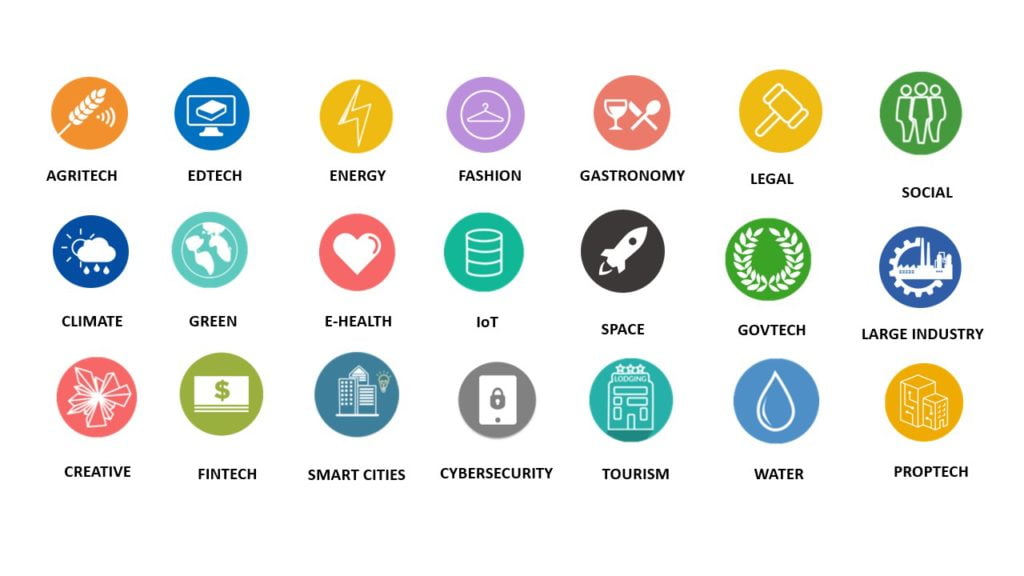 test in any category? Join us!
test in any category? Join us!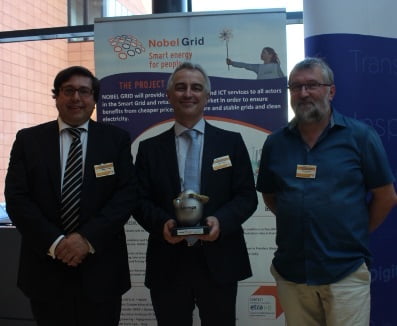 The ceremony took place at the Committee of the Regions in Brussels, within the framework of the International Congress
The ceremony took place at the Committee of the Regions in Brussels, within the framework of the International Congress 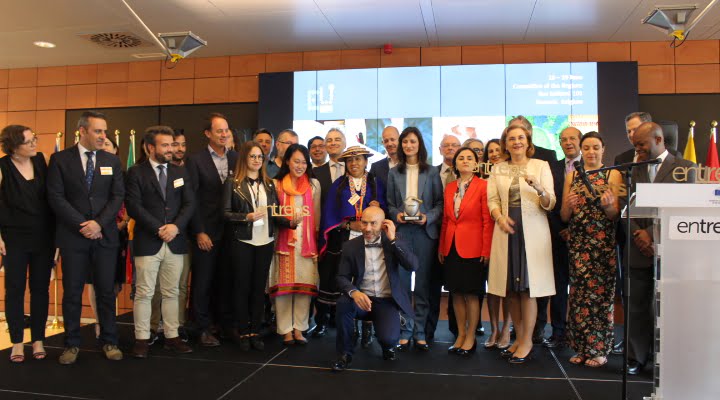 These tools and services make it possible to democratize the energy market, bringing it closer to the consumer, so that itsin the electricity market becomes more active, as well as to promote new business models for new actors and the integrated distribution of renewable energy production.
These tools and services make it possible to democratize the energy market, bringing it closer to the consumer, so that itsin the electricity market becomes more active, as well as to promote new business models for new actors and the integrated distribution of renewable energy production.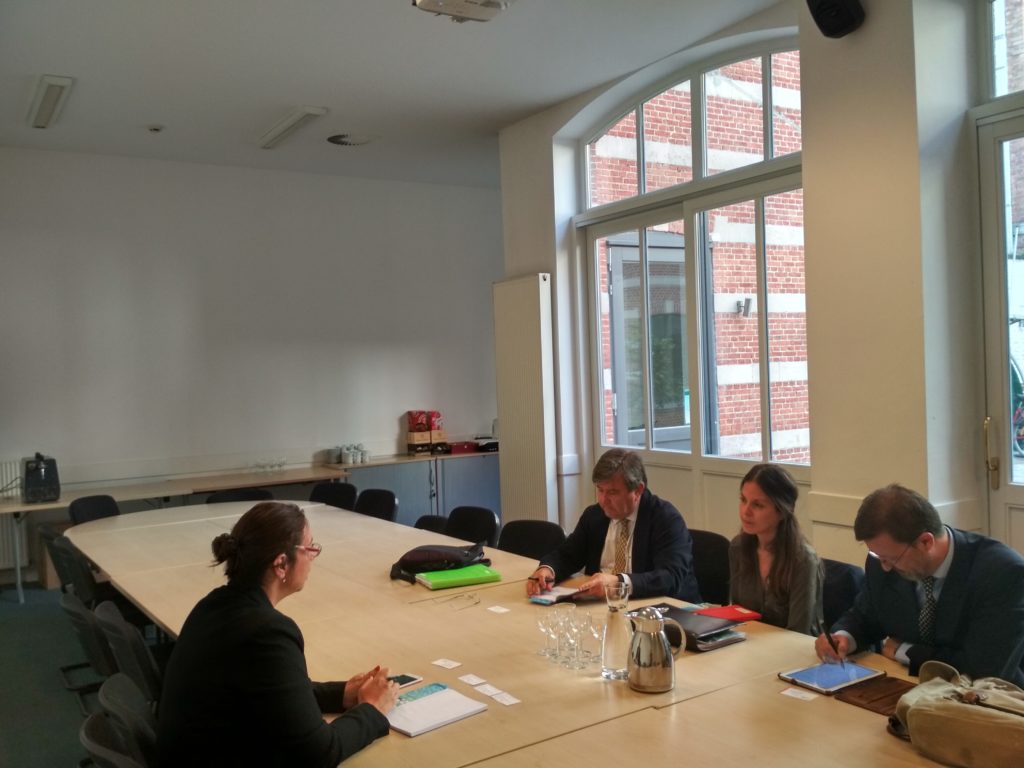
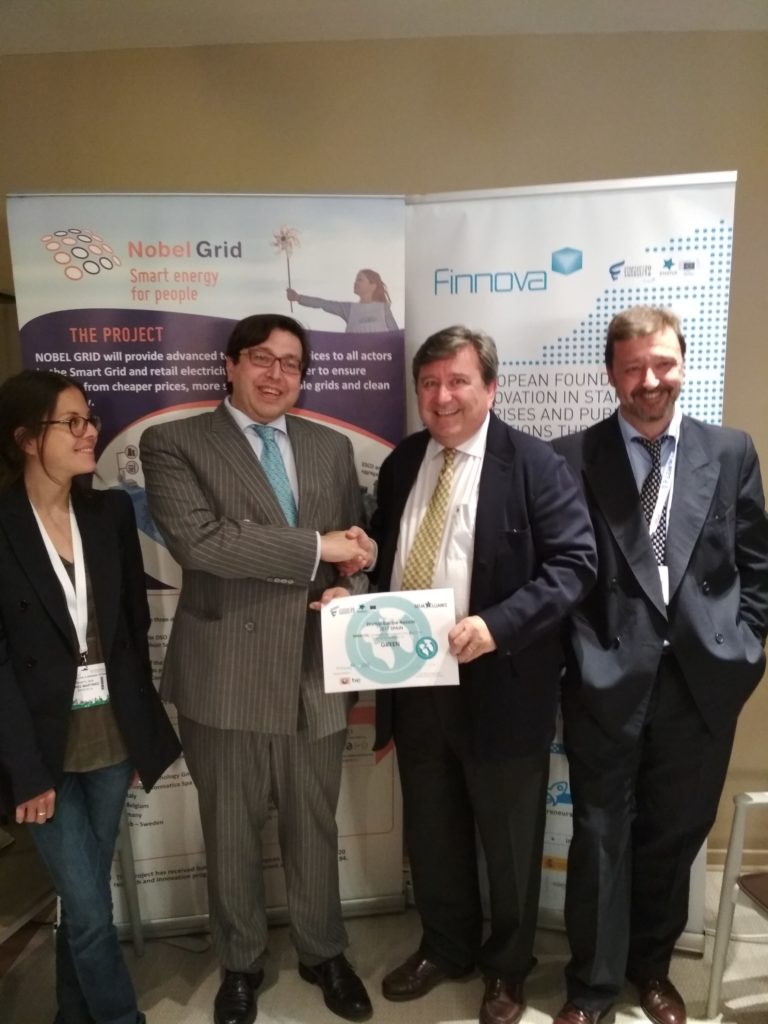
 El proyecto Horizonte 2020
El proyecto Horizonte 2020 

 The European Commission announced today how it will spend €30 billion of the EU research and innovation funding programme Horizon 2020 during 2018-2020. It will focus efforts on political priorities such as low carbon economy, climate action, circular economy, clean energy, among others.
The European Commission announced today how it will spend €30 billion of the EU research and innovation funding programme Horizon 2020 during 2018-2020. It will focus efforts on political priorities such as low carbon economy, climate action, circular economy, clean energy, among others.